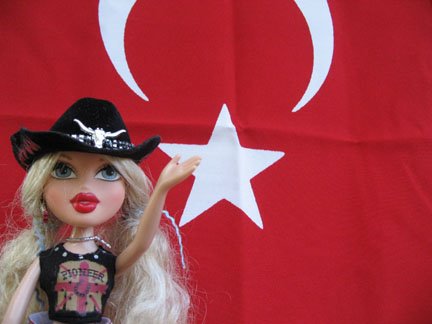
From the New York Times:
ISTANBUL, April 24 — Turkey’s ruling party on Tuesday chose a presidential candidate with an Islamic background, a move that will extend the reach of the party — and the emerging class of devout Muslims it represents — into the heart of Turkey’s secular establishment for the first time.
The selection has focused the worries of secular Turks who fear that sexual equality, as well as drinking alcohol and wearing miniskirts, could eventually be in danger.
Abdullah Gul, 56, the foreign minister, whose wife wears a Muslim head scarf and who is Prime Minister Recep Tayyip Erdogan’s closest political ally, is expected to be confirmed as president by Parliament in several rounds of voting that begin Friday. That will boost Turkey’s new political class — modernizers from a religious background.
“These are the new forces, the new social powers,” said Ali Bulac, a columnist for a conservative newspaper, Zaman, in Istanbul. “They are very devout. They don’t drink. They don’t gamble. They don’t take holidays. They are loaded with a huge energy. This energy has been blocked by the state.”
…
The party that Mr. Gul helped found, known by its Turkish initials, AK, sprang from the Islamic political movements of the 1990s. But the AK became significantly more moderate after taking power on a national scale in 2002. Since then, it has applied pragmatic policies that helped create an economic boom and opened up the state in ways that the rigid secular elite, which relied heavily on state control, had never imagined, in part to qualify for membership in the European Union.
Although the party is publicly adamant about keeping religion separate from policy, bristling at shorthand descriptions of it as pro-Islamic, it draws much of its support from Turkey’s religiously conservative heartland. Once on the periphery, these traditional Turks are now emerging as a powerful middle class that has driven Turkey’s boom. The economy has nearly doubled in the four years that the AK has been in power, largely because it has stuck to an economic program prescribed by the International Monetary Fund.

No comments:
Post a Comment